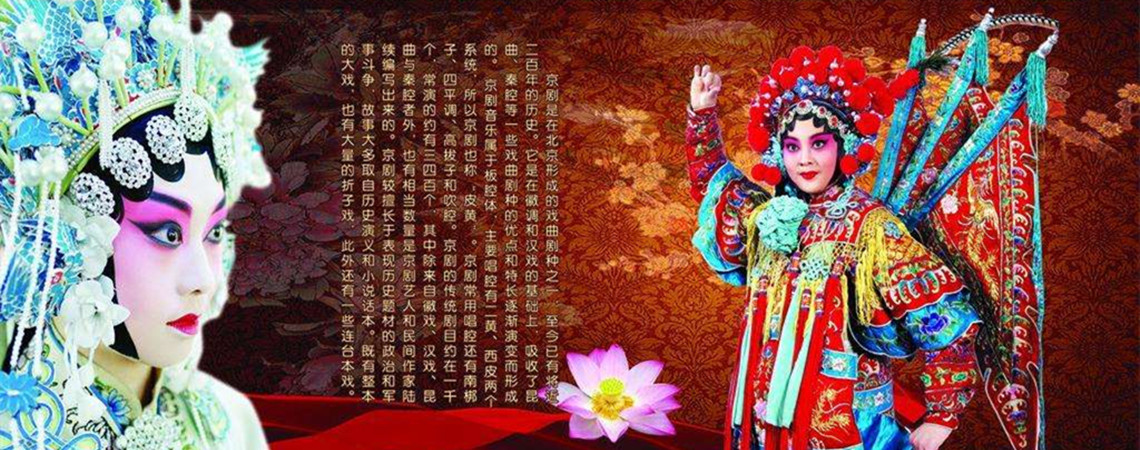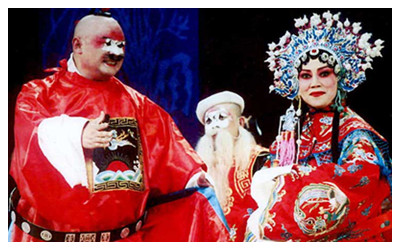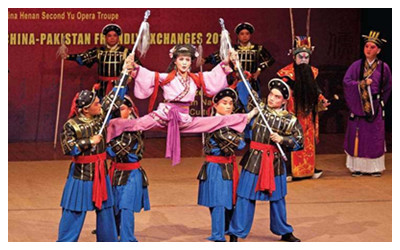Skype: neodalle-travel
Tel: +86 135 7447 2266
E-mail: sales@visitaroundchina.com

 Yu Opera is based on Henan Bangzi , a kind of local drama form that is about 300 years old. In China, the name of Henan Province is abbreviated as ‘Yu’, and hence the opera itself was officially named ‘Yu Opera’ after the founding of the People’s Republic of China. Because of its beautiful tunes, use of plain spoken language and exquisite performances, Yu Opera is always well received by audiences.
Yu Opera is based on Henan Bangzi , a kind of local drama form that is about 300 years old. In China, the name of Henan Province is abbreviated as ‘Yu’, and hence the opera itself was officially named ‘Yu Opera’ after the founding of the People’s Republic of China. Because of its beautiful tunes, use of plain spoken language and exquisite performances, Yu Opera is always well received by audiences.Yu Opera’s live shows are always grand, magnificent and powerful. The musical tunes are strong and beautiful, with a local touch. The performances of Yu Opera actors or actresses are true to life with humour and vigour. Whether they are playing the parts of emperors or generals, princes or princesses, peasants or peddlers, they perform them with great skill, supported by great costumes and make-up (including a head-dress). For example, in the play Hua Mulan, the actress who plays the lead, a female general in “male attire”, who sings with a powerful and vigorous voice to show the heroic posture of Mulan, who goes to the battlefield for her father and serves her country. It is a difficult role to play, but in the Yu Opera, she plays with extraordinary skill in both acting and singing, and thus wins over the audience.
According to statistics by the Ministry of Culture of China, there are more than 220 Yu Opera troupes under direct administration of culture departments at the national, provincial and prefecture level. Besides Henan province, there are also professional Yu Opera troupes in other parts of the country, such as Hubei, Anhui, Jiangsu, Shandong, Hebei, Beijing, Shanxi, Sichuan, Gansu and Xinjiang. There are even more private troupes.
Features of Yu Opera
Yu opera is noted for its demanding melodies, strong rhythms and intensive use of spoken language. Yu Opera is popular to the broad masses for it is full of local features and rich flavor of life. Unsophisticated, plus exquisite and vivid performances, it becomes a major local opera in Henan Province and enjoys nationwide popularity.
Yu opera, originating and developing in Henan Province a long time ago, is one of five famous Chinese operas, alongside Peking Opera and Shaoxing Opera. Henan Province is where Yu Opera was created and developed. Unlike the Peking Opera which is a national opera, Yu Opera is China’s first regional opera.
Plays of Yu Opera
 There are more than 600 traditional plays in the repertoire of Yu Opera, among the most well known are Chang Xiangyu's Kao Hong, White Snake Story, and Hua Mu Lan, and Ma Jinfeng's Mu Guiying Assumes Command, and Chaoyanggou as a modern play.
There are more than 600 traditional plays in the repertoire of Yu Opera, among the most well known are Chang Xiangyu's Kao Hong, White Snake Story, and Hua Mu Lan, and Ma Jinfeng's Mu Guiying Assumes Command, and Chaoyanggou as a modern play.
Romantic Scholar (Fengliu Caizi in Chinese):
The opera vividly describes the beautiful romance between Tang Bohu and Qiu Xiang. Tang was a romantic scholar chased by dozens of charming women. He resists them all, including his cousin Feng Yulan, a beautiful lady from a rich family. One spring day, Tang goes sightseeing on Suzhou's Huqiu Hill and encounters Qiu Xiang, a maidservant with a high-ranking official's family. Tang falls in unrequited love with Qiu. Giving up the opportunity for an official post and ignoring views of others, he disguises himself as a servant to get close to Qiu Xiang. After experiencing countless troubles, he achieves what he wishes
Arranged Marriage(Qin Xuemei in Chinese):
During the Ming Dynasty, Qin Xuemei and Shang Lin are engaged as children. Later, when Shang's family is persecuted by malicious ministers, he goes to live with the Qin family. But Qin's father no longer agrees on his daughter's marriage to then yuong man and drives Shang out. When he returns to his own home, Shang becomes seriously ill and soon dies. Overwhelmed with sorrow and againgst her father's wishes, Qin goes to the Shang family for the funeral.
Clever Magistrate (Tang Zhixian Shen Gao Ming in Chinese):
Yan Song is a treacherous prime minister during the Ming Dynasty. His arrogant sister, who enjoys an honorary title by imperial mandate persuades her son Cheng Xiniu to capture Lin Xiuying, a local woman. A heroic man defends Lin, but during the fight, Cheng Xiniu is accidentally killed by his servants. In her fury, Cheng's mother has her servants beat Lin's father to death. Only Magistrate Tang dares to try the case and with clever tricks, he defeats this arrogant woman.
Chaoyanggou Village (Chaoyanggou in Chinese):
Yinhuan, a high school graduate, comes to her fiancis home village, Chaoyanggou, to take part in agricultural production. Meeting a lot of difficulties, she wavers between two choices: settling down in the backward village or returning to the city for a comfortable life. Through labor, she begins to understand the local people and is determined to devote her youth to the building of a new rich village.
Yu Opera was listed in the first group of National Intangible Cultural Heritages by the State Council. The National Academy of Chinese Theatre Arts established the first BA course of Yu Opera and took in 24 students from all over the country in 2009.
In recent years, Yu Opera troupes have done their tour shows in many countries, including Pakistan, Australia, New Zealand, Italy, France, Canada, Venezuela, Germany, the UK, USA and Thailand. Their performances were highly praised by the audience.
 Ask Questions ?
Ask Questions ?